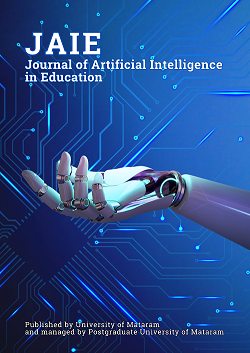
About the Journal
The Journal of Artificial Intelligence in Education (JAIE) publishes papers concerned with the application of AI to education. It aims to help the development of principles for the design of computer-based learning systems. Its premise is that such principles involve the modeling and representation of relevant aspects of knowledge, before implementation or during execution, and hence require the application of AI techniques and concepts. JAIE has a very broad notion of the scope of AI and of a 'computer-based learning system'. Coverage extends to agent-based learning environments, architectures for AIE systems, bayesian and statistical methods, cognitive tools for learning, computer-assisted language learning, distributed learning environments, educational robotics, human factors and interface design, intelligent agents on the internet, natural language interfaces for instructional systems, real-world applications of AIE systems, tools for administration and curriculum integration, and more.
The scope of the Journal of Artificial Intelligence in Education covers various disciplines, including:
- adaptive and intelligent multimedia and hypermedia systems
- agent-based learning environments
- AIE and teacher education
- architectures for AIE systems
- assessment and testing of learning outcomes
- authoring systems and shells for AIE systems
- case-based systems
- cognitive development
- cognitive models of problem-solving
- cognitive tools for learning
- computer-assisted language learning
- computer-supported collaborative learning
- dialogue (argumentation, explanation, negotiation, etc.)
- discovery environments and microworlds
- distributed learning environments
- educational robotics
- embedded training systems
- empirical studies to inform the design of learning environments
- environments to support the learning of programming
- evaluation of AIE systems
- formal models of components of AIE systems
- human factors and interface design
- instructional design principles
- instructional planning
- intelligent agents on the internet
- intelligent courseware for computer-based training
- intelligent tutoring systems
- networked learning and teaching systems
- neural models applied to AIE systems
- practical, real-world applications of AIE systems
- situated learning and cognitive apprenticeship
- student modelling and cognitive diagnosis




